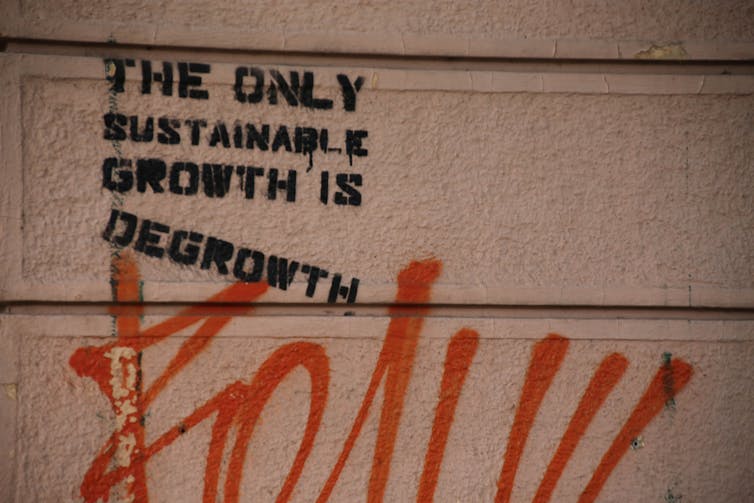It’s extensively accepted that human actions are the first drivers of worldwide warming and environmental crises, together with the speedy lack of biodiversity. Nevertheless, the controversy over how greatest to deal with these points is way from settled. In political circles, “inexperienced progress” – the idea of creating financial actions extra sustainable – has emerged as the most well-liked answer.
Is inexperienced progress sufficient?
The thought behind inexperienced progress is to proceed increasing economies whereas minimising environmental hurt. Nevertheless, critics argue that this strategy has didn’t considerably curb local weather change and biodiversity loss.
Regardless of worldwide efforts for the reason that Seventies, carbon emissions have continued to rise. Because the World Inequality Report reveals, almost half of historic emissions occurred after 1990. Incremental coverage modifications, technological improvements and shifts in shopper behaviour haven’t been sufficient to reverse this pattern. This failure has led to the rising attraction of “degrowth” – a extra radical various that challenges the present international financial system.
What’s ‘degrowth’?
“Degrowth” emerged in Europe, notably in France, within the late 2000s. Philosophers equivalent to André Gorz and economists equivalent to Serge Latouche had been amongst its early proponents, with researchers equivalent to Tim Jackson later popularising the idea within the English-speaking world. They argue that the basis reason for environmental destruction lies not solely in human exercise but additionally in a worldwide financial mannequin that has prioritised progress and revenue for the reason that Industrial Revolution.
Initially, degrowth was a critique of Western life and notions of progress. Environmental considerations had been only one a part of the motion’s broader agenda. Over time, nevertheless, environmentalism has turn out to be central to the motion’s objectives.

Paul Sableman, CC BY
What concerning the international south?
In the present day, many degrowth advocates assert that the richer international locations of the worldwide north, being largely answerable for environmental degradation, ought to be those to cut back financial exercise to avert ecological disaster. However what concerning the poorer international locations of the worldwide south? Ought to they undertake degrowth methods? Some argue this may impose a neocolonial agenda, with wealthier international locations as soon as once more dictating the phrases of worldwide improvement. Others word that many poorer international locations want financial progress to fight poverty. And even when degrowth had been restricted to the north, it might nonetheless have vital results on the south – each constructive and destructive.
A assessment of educational literature on degrowth and the worldwide south reveals two important views: those that see degrowth as incompatible with the south’s improvement wants, and people who imagine it might provide synergies with sustainable improvement objectives.
Support authors and subscribe to content
This is premium stuff. Subscribe to read the entire article.












